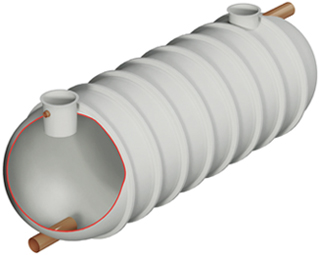Domestic boreholes offer an alternative means for supplying your property with water without relying on water supply from a utilities provider. By drilling deep underground, you can access groundwater which can then be extracted and pumped into your home. However, if you are considering installing a domestic borehole on your premises, there are many points for consideration and important planning which needs to occur first.
Site survey
If you’re interested in installing a domestic borehole on your premises, you should first hire a hydrogeological consultant to conduct a site survey. They will be able to assess your land and establish its suitability, i.e. whether it will provide water in the quantity and of a good enough quality for your purposes. If your site is suitable, they can then recommend the best site location for the borehole and how deep it should be drilled.
The Environment Agency
If your site seems suitable for a borehole, you should approach the Environment Agency (EA) to seek authorisation for drilling. At this point you can also enquire as to whether you will also require a licence for your borehole. Whether you need a licence or not is dependent on the amount of water you intend to use/pump and whether there are extraction restrictions in place for your area.
Drilling and pumping
Once you’ve acquired the necessary permissions, you can organise for a specialist drilling company – your hydrogeological consultant may be able to give you a recommendation – to drill the borehole. The operatives will drill to the depth recommended in your site survey and will line the borehole too. As well as drilling to the necessary depth, you will require a pump to access your water and pipework for transporting it from the borehole into your home. A specialist – such as Wildon UK – will be able to advise and supply you with the most suitable borehole pump for your needs.
Water quality
The water extracted from your domestic borehole should undergo a potable water test to establish what is in it and what water treatments will be necessary to make it suitable for drinking and domestic usage. Once you know what your unique water contains, you can select a water treatment system to fit; this may, for example, filter out sediment, remove mineral content and disinfect the water.
Once you have installed your domestic borehole and equipment, you should register it with your Local Authority. Your local Environmental Health Department has an obligation to test the water and they can provide you with useful information, such as pollution risks.
Maintenance
Your domestic borehole water supply system will run smoothly for many years when maintained correctly. Ensure you organise annual professional checks of your complete system to keep everything in good working order.
Wildon UK are drainage and wastewater treatment experts who can offer professional advice and a wide range of services to clients in Stoke-on-Trent and further afield throughout the UK. With a wealth of experience and a team of highly trained, talented engineers, we are able to provide high quality installations, maintenance services and repair work for an extensive range of systems. Contact our helpful team today with any enquiries.
Go back to








